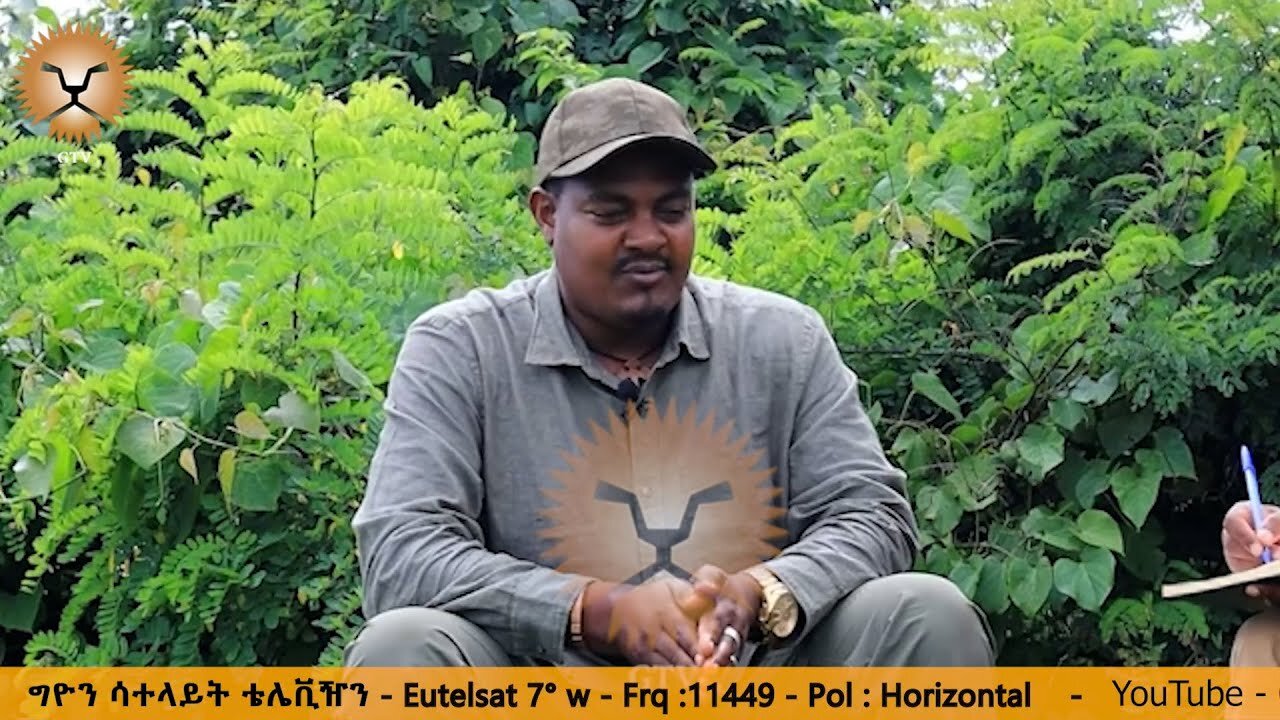![]() (THE HABESHA) – In the ever-shifting landscape of power struggle and negotiations, FANO Zemene Kasie stands as a steadfast bulwark, maintaining their stance of not yet engaging in dialogue with any government entity. Their force, characterized by resolve and determination, continues to navigate the complex political geography, asserting their interests, and strategic objectives. In this context, understanding FANO and Zemene Kasie’s position presents a crucial perspective on governmental and non-governmental engagement. This article will delve into exploring their leadership, their unyielding stance, and the implications it imposes on the broader geopolitical structure.
(THE HABESHA) – In the ever-shifting landscape of power struggle and negotiations, FANO Zemene Kasie stands as a steadfast bulwark, maintaining their stance of not yet engaging in dialogue with any government entity. Their force, characterized by resolve and determination, continues to navigate the complex political geography, asserting their interests, and strategic objectives. In this context, understanding FANO and Zemene Kasie’s position presents a crucial perspective on governmental and non-governmental engagement. This article will delve into exploring their leadership, their unyielding stance, and the implications it imposes on the broader geopolitical structure.
Background of FANO Zemene Kasie
FANO Zemene Kasie is a name that, in late years, has garnered much recognition, carrying with it an air of both awe and mystery. This profile seeks to clear some of the shroud and ground his story not just in the realm of the public eye, but in the relevance and gravity of today’s politico-societal sphere.
Leadership Journey of Zemene Kasie
The history of Zemene Kasie’s leadership journey is as intriguing as it is transformational. Beginning as a participant in community mobilization efforts, his charisma and practical wisdom propelled him into the frontlines of leadership. His emphasis on democratic cooperation and fair distribution of resources quickly earned him much respect and reverence among his peers and subordinates. These attributes stand prominently in Zemene’s leadership style, making him a force to reckon with within the FANO organization.
He has always deflected attention from himself, reinforcing that he is simply an emissary of the will of the group. Yet, it is undeniable that his experienced guidance has helped navigate FANO through tumultuous waters on numerous occasions.
Role within the FANO Group
Zemene Kasie plays an essential role as the leader of the FANO group. His contributions extend well beyond strategic decision-making, touching upon the heart and soul of the organization. Aside from undertaking significant strategic responsibilities, he oversees the welfare of every member, ensuring the core tenets of FANO: fraternity, adaptability, non-discrimination, and originity, are upheld.
He spearheads the group’s vision, development, and execution strategy, while his exceptional dexterity in dealing with complex socio-political dynamics is noteworthy. Despite the myriad of obstacles the FANO group faces, Kasie’s level-headedness coupled with an indomitable resolve has ensured the group remains steadfast in its objectives.
The backdrop of FANO Zemene Kasie and his input in the FANO group sketches a vivid picture of a man defined by an unyielding spirit and a firm commitment to a cause. As a leader, Zemene Kasie symbolizes the collective will and aspirations of the people he represents. His leadership journey and crucial role within FANO attest to his capacities and the significant influence he commands within the group.
Current Status of Negotiations
The present condition of potential dialogue between FANO and governmental entities is a matter of public interest and concern. As the scenario unfolds day by day, the discourse of negotiation becomes more complex and multifaceted.
Statements from FANO Leadership
Starting with an authoritative voice, the central figure to look at here is Zemene Kasie. The leader of the FANO force has categorically stated on several occasions that there has been no engagement in negotiations with any governmental unit up to this point.
If you were to Google “FANO Zemene Kasie negotiations status”, you would find successive records of him maintaining this stand, lending a clear validation to the abovementioned state of affairs. Zemene has always been forthright about his principles and seems unwilling to compromise them for the sake of entering into a dialogue without any preconditions.
Governmental Response
The reaction of the government to FANO’s stance has varied. Some segments have shown an inclination to foster a dialogue, yet distinct signs of resistance to FANO persist.
The government, maintaining its standpoint, asserts that peace with FANO can only be established if the group adheres to the constitutional and legal framework of the country. This insistence contrasts sharply with FANO’s seemingly non-negotiable prerequisites.
In conclusion, the current status of negotiations between FANO and the government seems hinged on a delicate balance of power, ideals, and priorities. Without a significant shift in either party’s standpoints, reaching an agreement could potentially be a long and complex process.
Implications of Non-Negotiation
As reiterated by FANO leader, Zemene Kasie, the group is yet to engage in negotiations with any governmental entity. This decision (or lack thereof) carries certain implications, specifically for FANO and the region at large. Understanding these potential outcomes calls for a detailed exploration of the situation.
Potential Consequences for FANO
FANO’s approach of non-negotiation could lead to several consequences which could change the dynamics of their operations. First, the possibility of isolation from potential allies in the government could significantly affect their ability to influence policy changes. This may result in the further marginalization of FANO’s cause, making it hard for their views to be heard or considered on a national scale.
Moreover, by maintaining a stance of non-negotiation, FANO may also be inadvertently harming its public image. The insistence on not engaging with the government may paint a narrative of inflexibility and intransigence, possibly leading to diminished public support. Relevant stakeholders such as international bodies and potential allies might also perceive this decision negatively.
Impact on Regional Stability
Besides FANO’s situation, the non-negotiation stance similarly poses severe implications for regional stability. In the absence of dialogue, the chances of conflict escalation become imminent. In the worst-case scenario, this could potentially trigger a cycle of violence that goes beyond FANO and the government’s dispute, affecting the entire region.
Moreover, instability often paves the way for socioeconomic disruptions, increasing the suffering of ordinary citizens. Jobs might be lost, businesses ruined, and the economy could take a nosedive. Additionally, an unstable environment also undermines investment and other development opportunities, which further deteriorates the quality of life for the populace.
In conclusion, Zemene Kasie’s statement regarding FANO’s non-negotiation with the government extends beyond mere words. The implications are wide-reaching, affecting not only FANO but also ordinary citizens and the region at large. It paints a worrying picture of the potential already unfolding consequences, stirring the need for focused attention and prompt intervention for regional stability.🕊️ It is noteworthy for peace enthusiasts to keep an eye on this situation.
Note: This article only discusses the potential implications and does not predict an inevitable outcome. Future situations may differ with changes in circumstances.
Future Prospects for Dialogue
In the world of politics where power dynamics often shift subtly, also lies the hope for future prospects for dialogue. Greater understanding and regular communication may pave the way to fruitful negotiations, if conditions become favorable.
Conditions Required for Negotiation
Given that FANO Zemene Kasie has recently reiterated his stand that the force under his command has not yet engaged in any negotiations with a governmental entity, many are asking what conditions could stir the status quo. Essentially, these involve attaining a unique mix of internal agreement within FANO, a receptive governmental response, and conducive regional stability.
A crucial condition requires the leader and members of FANO to come to a consensus about the necessity and advantages of entering formal negotiations. This could be influenced by an assortment of factors such as growing internal pressures, the prospects of achieving their objectives through diplomatic channels, or the anticipation of improved circumstances post-negotiations.
Next up is the stance of the governmental entity involved. They too have to be in a position to attend negotiations, either because of international pressures or the realization that negotiating with FANO might provide a lasting solution to the ongoing issues. It’s worthy to note that public opinion can play a role in swaying political judgements here.
Thirdly, regional stability is also a condition. Without it, any negotiation with FANO would be built on shaky ground, thus making the process of dialogue complex and potentially risk-laden.
Scenarios for Peaceful Resolution
While the prospects may seem bleak at the moment, there are still various scenarios that could result in a peaceful resolution.
One optimistic scenario is that there might be a situation where back-channel negotiations are already underway, laying the groundwork for future, open talks. Such a forum might help to give FANO leadership the assurance that their views will be listened to and given due consideration by the governmental entity.
A second scenario could involve a third-party mediator. A neutral nation or body that both FANO and the government trust might be able to broker talks and ensure that they stay on track.
Ultimately, while the journey towards peaceful resolution seems challenging, the potential rewards are considerable for both FANO, the involved governmental entity, and the citizens at large.
Remember this insightful quote, ‘Peace is not absence of conflict, it is the ability to handle conflict by peaceful means.’ The forward path might be laden with stumbling blocks, but the prospect of achieving peace and stability through dialogue and negotiations remains an avenue worth exploring. Hence, the emphasis must be on setting the conditions conducive to negotiation and working tirelessly towards them.



